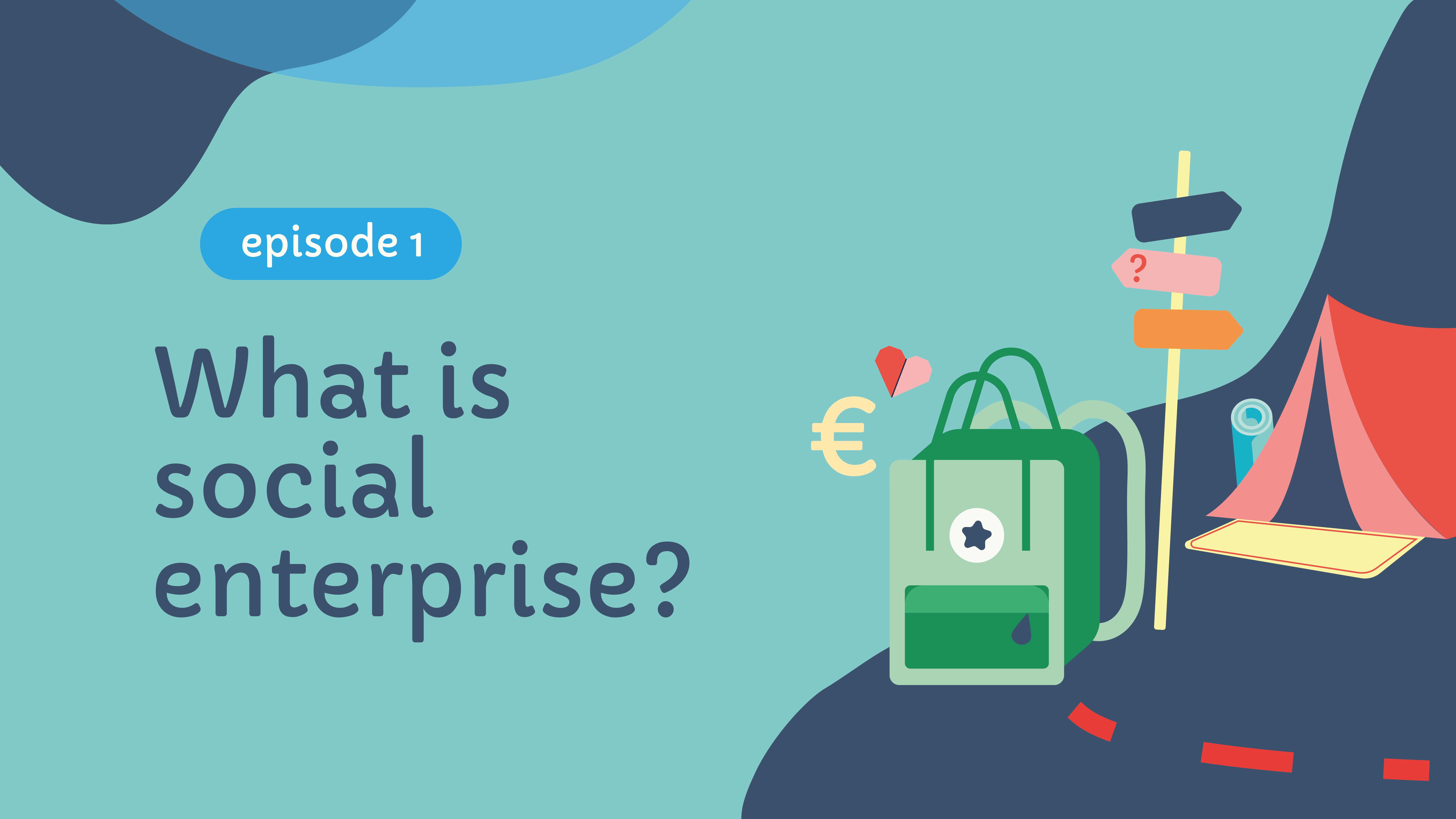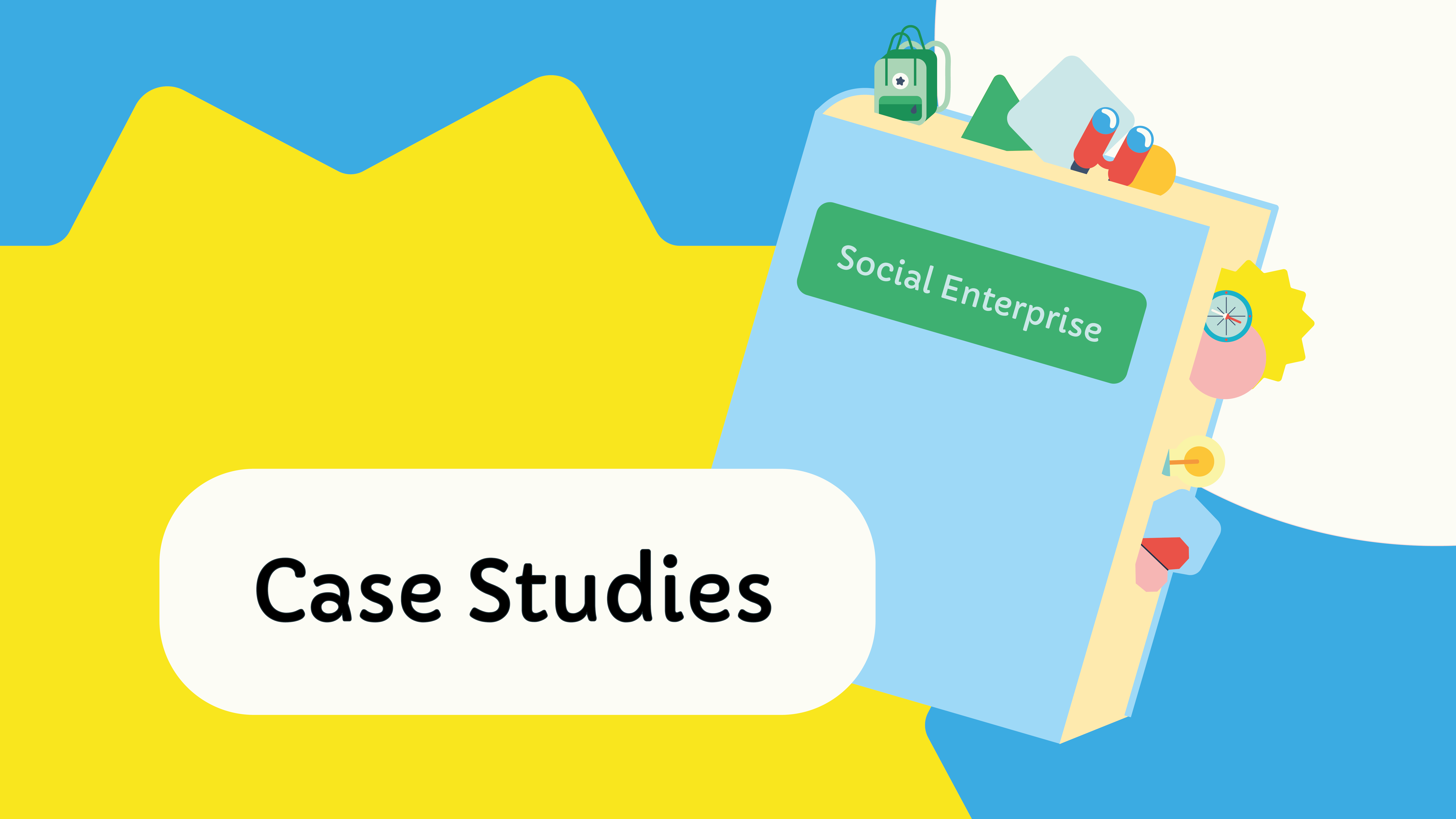Episode 1
What is social enterprise?

Welcome to Summit Social!
We believe that social enterprise can be a powerful tool in solving social problems. This training series is for anyone interested in starting an impact-driven social enterprise. Together, we will explore what this involves.
Now that you’ve watched the first video, we hope you’re beginning to understand what a social enterprise is and what your idea could become. Summit Social helps you to see where to begin and how you can plan to make your social enterprise the best it can be. Right now, we’re at base camp. This is the time to start preparing for your journey to the summit!
We believe that social enterprise can be a powerful tool in solving social problems. This training series is for anyone interested in starting an impact-driven social enterprise. Together, we will explore what this involves.
Now that you’ve watched the first video, we hope you’re beginning to understand what a social enterprise is and what your idea could become. Summit Social helps you to see where to begin and how you can plan to make your social enterprise the best it can be. Right now, we’re at base camp. This is the time to start preparing for your journey to the summit!
This is a course designed to complete at your own pace. You can choose to watch videos or complete different tasks whenever you like. Twelve episodes aim to give you a launchpad to develop your idea into a well-rounded and achievable plan.
Before you get started, let us explain how these lessons will be structured. Every lesson will start with an episode explaining a key aspect of running a social enterprise, like the one you just watched. Alongside these, each lesson will have some further reading, a video of social entrepreneurs discussing their own experiences, some other case studies and/or resources, and an activity. We suggest you use these additional aids to consolidate your knowledge, build on your idea and learn about other social entrepreneurs: what they do and why they do it. Don't forget to take notes if you think it'll help you.
The activities at the end of each lesson have links to multiple versions. You can choose whether you'd rather print out copies or fill them in digitally. Some of the activities are templates you can use to draft parts of your business plan, so it might be wise to keep your completed versions in one location. By the time you reach the summit, you’ll have a log of your journey to look back on and use in the future. Remember, you can do this at your own pace!
We hope that you’re feeling inspired and ready to begin your expedition...
Social Entrepreneurs Discuss

Further Reading
We said earlier in the video that the main objective of social enterprises is to create social value. Let's look at an example like the social enterprise Refuge Hot Chocolate. We can see that it states it exists ‘not only to make the best hot chocolate in the world, but also to help give people a brighter future through donating proceeds to Flourish — an anti-human trafficking charity.’ You can see there is both trade and a focus on their mission to stop human trafficking.
Across the globe, ...
(Read more...)
(Read more...)
We said earlier in the video that the main objective of social enterprises is to create social value. Let's look at an example like the social enterprise Refuge Hot Chocolate. We can see that it states it exists ‘not only to make the best hot chocolate in the world, but also to help give people a brighter future through donating proceeds to Flourish — an anti-human trafficking charity.’ You can see there is both trade and a focus on their mission to stop human trafficking.
Across the globe, people are realising that they aren’t content with only making money through the work they do. They want to contribute and make a difference to the world through doing business in a more sustainable way. There are opportunities to do this because traditional business models are failing to deliver positive social and environmental change. Some traditional businesses create problems such as deforestation, and pollution, taking jobs and resources away from local communities, pushing down supply prices in an unsustainable way and depleting resources.
Often governments, corporations and other non-profits aren’t coming up with solutions to social and environmental problems either — though, in recent years, social enterprise has received growing support from governments and local councils. In 2019 the Irish government published its National Social Enterprise Policy, demonstrating that it sees social enterprise as an important and growing part of the economy. There are also dedicated staff employed at the local and Government levels who support social enterprise. In Ireland there are also an increasing number of organisations that support social enterprises to start up, grow and develop through training and funding.
A social enterprise most commonly starts as a passion project or comes from an idea that figures a better way of doing something — so they're often innovative and respond to an observed need. Many social entrepreneurs have had lived experiences of issues such as mental/physical health, abuse, addiction or marginalisation, and through their experiences, have identified a lack in service provision.
Social enterprises are known for delivering personalised services to marginalised individuals. They consider barriers that may make services inaccessible for people considered more vulnerable within society. Because of their grassroots nature, they tend to have positive relationships with their beneficiaries.
There is also a growing desire from consumers for products and services to be created and delivered ethically and sustainably. There is a huge rise in businesses that demonstrate transparency in how their products are made and how their profits are used to benefit or add value to communities or the environment — this is known as their social impact.
Across the globe, people are realising that they aren’t content with only making money through the work they do. They want to contribute and make a difference to the world through doing business in a more sustainable way. There are opportunities to do this because traditional business models are failing to deliver positive social and environmental change. Some traditional businesses create problems such as deforestation, and pollution, taking jobs and resources away from local communities, pushing down supply prices in an unsustainable way and depleting resources.
Often governments, corporations and other non-profits aren’t coming up with solutions to social and environmental problems either — though, in recent years, social enterprise has received growing support from governments and local councils. In 2019 the Irish government published its National Social Enterprise Policy, demonstrating that it sees social enterprise as an important and growing part of the economy. There are also dedicated staff employed at the local and Government levels who support social enterprise. In Ireland there are also an increasing number of organisations that support social enterprises to start up, grow and develop through training and funding.
A social enterprise most commonly starts as a passion project or comes from an idea that figures a better way of doing something — so they're often innovative and respond to an observed need. Many social entrepreneurs have had lived experiences of issues such as mental/physical health, abuse, addiction or marginalisation, and through their experiences, have identified a lack in service provision.
Social enterprises are known for delivering personalised services to marginalised individuals. They consider barriers that may make services inaccessible for people considered more vulnerable within society. Because of their grassroots nature, they tend to have positive relationships with their beneficiaries.
There is also a growing desire from consumers for products and services to be created and delivered ethically and sustainably. There is a huge rise in businesses that demonstrate transparency in how their products are made and how their profits are used to benefit or add value to communities or the environment — this is known as their social impact.
(Read less...)
Resources
Refuge Hot Chocolate is a social enterprise based in Belfast, Northern Ireland. They aim to support the survivors of human trafficking in Northern Ireland and use ethically sourced ingredients in their drinking chocolate.
My Streets Ireland was the 2019 winner of the Dublin City Social Enterprise Awards. They aim to provide education and employment for homeless people by training, and providing roles as, tour guides. They also hope to better educate people about homelessness. Watch carefully as one of the activities for this episode will ask you questions based on this video.
An annual event beginning in 2008, engaging with thousands of social enterprise leaders and practitioners from over 50 countries worldwide, holding forums in cities as diverse as Rio de Janeiro, Addis Ababa, Seoul, San Francisco and Christchurch. Their goal is to grow the global social enterprise movement to accelerate our transition to a new global impact economy.
The national body for social enterprises in Ireland.
Activities
These activities will get you thinking about the different challenges and approaches social enterprises might have, and will ask you to consider experiences you've had with products that have an embedded social impact.
Episode Summary
First of all, well done for getting through the first session. Hopefully, you've learnt a little bit about social enterprises and feel more familiar with the notion. Social enterprise is a fluid and evolving concept, so don’t be too concerned if you're still feeling lost at sea. Throughout the course we'll be introducing different components of social enterprise, so you'll build up your knowledge over time. Think of it like a jigsaw puzzle: once we put more pieces in place, we’ll start seeing the picture more clearly.
Elizabeth Theunissen
I am convinced that social enterprise is one of the best ways to change peoples lives for the better and sustainably.